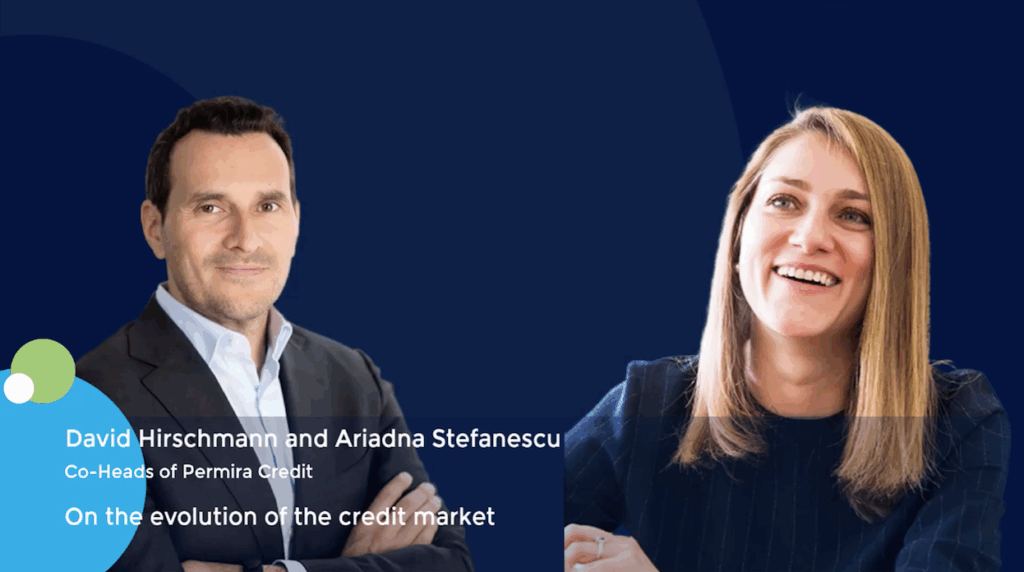Kirsten Bode, Co-Head of Private Debt Pan-Europe, Muzinich, on identifying a successful niche in mid-market private credit
In a recent fireside chat, Kirsten Bode, Co-Head of Pan-European Private Debt at Muzinich & Co, delved into the intricacies of identifying successful niches in mid-market private credit. Hosted by Giovanni Amodeo, the discussion covered a range of topics, from Bode’s extensive background in finance to the evolving landscape of private credit and the impact of ESG (Environmental, Social, and Governance) factors on investment strategies.
Background and Experience: Kirsten Bode shared her journey in the finance sector, highlighting her tenure at Morgan Stanley and her role in establishing European private credit activities at Muzinich. Her experience spans M&A, distressed finance, and principal investing, providing her with a solid foundation for her current role.
Identifying Niches in Mid-Market Private Credit: Bode emphasized the attractiveness of the lower middle market segment, citing regulatory challenges for banks and the abundance of companies as key factors. She pointed out the necessity of having local teams to effectively engage with smaller companies, underscoring the importance of understanding the unique needs and challenges of this market segment.
Role of Banks and Intermediaries: The discussion touched on the changing role of banks in the face of regulations like Basel III and the increasing relevance of debt advisors in connecting companies with private credit providers. Bode noted the differences in banking landscapes across Europe and the gradual shift towards institutional players in the lending space.
Investment Process and Technology: Bode revealed that Musinich analyzes 500-600 transactions annually, with a conversion rate of 15-20 transactions. She highlighted the human element in their analysis process, acknowledging the challenges in standardizing information across different languages and accounting standards.
ESG in Private Credit: The conversation also covered the growing emphasis on ESG in private credit. Bode discussed how documentation can influence sustainability practices among smaller companies and the introduction of ESG margin ratchets as incentives for businesses to improve their ESG performance.
Future Trends: Looking ahead, Bode expressed optimism about the UK market and the potential for evergreen products and ELTIF 2.0 regulation to shape the future of private credit. She also emphasized the importance of innovation in product structures to meet investor needs and regulatory requirements.
This fireside chat with Kirsten Bode offered valuable insights into the strategies and considerations that drive success in mid-market private credit, highlighting the importance of local expertise, the evolving role of banks and intermediaries, and the increasing focus on ESG factors in investment decisions.
Key timestamps:
09.51: Introduction to ION Influencers’ Fireside Chats
00:40: Background and Role within Muzinich
01:37: Identifying Successful Niche in Mid-Market Private Credit
03:30: Role of Banks and Transition to Institutional Players
04:51: Regional Differences in Banking Systems
05:43: Challenges and Preferences in Different Countries
06:34: Relevance of Capital and Differentiation from Banks
07:20: Workflow and Transaction Analysis
08:40: Evolution of Intermediaries’ Role
10:02: Use of Technology in Screening Opportunities
10:57: Importance of Brand and Independent Credit Providers
12:53: Market View and Impact of Interest Rates
14:05: Risk Assessment and Leverage Levels
15:06: Risk and Intermediation in the Private Credit Market
15:35: Growth and Barriers in Private Credit Market
17:17: Investment Focus and Ticket Sizes
18:02: Localization vs. Global Brand Strategy
18:44: Influence of Private Credit Providers on Sustainability
20:42: Investor Inquiries about Sustainability
21:42: Investor Concerns and Incentivization
22:50: ESG and Credit Quality
27:11: Conclusion











